News
Beverage market growth accelerates
4 Apr 2016The U.S. liquid refreshment beverage market grew more quickly in 2015 than in 2014, according to newly released preliminary data from consulting, research and advisory services firm dedicated to the global beverage industry Beverage Marketing Corporation.

The U.S. liquid refreshment beverage market grew more quickly in 2015 than in 2014, according to newly released preliminary data from consulting, research and advisory services firm dedicated to the global beverage industry Beverage Marketing Corporation, who said that the market's growth was the strongest seen in several years. Beverage-specific factors, such as the remarkable vibrancy of the sizeable bottled water segment, as well as more general ones, such as the continuing economic recovery, contributed to the overall increase in liquid refreshment beverage volume, which approached 32 billion gallons in 2015.
Bottled water had another notable year, the researchers said. The category's core characteristics – healthful, natural, zero-calorie – increasingly resonate with U.S. consumers. Pricing remained aggressive, which also contributed to bottled water's performance. Its growth actually accelerated, which is said to be unusual for a category its magnitude. Volume enlarged by 7.9%. Bottled water could become the number-one beverage by volume as soon as this year, Beverage Marketing Corporation believes.Niche categories continued to outperform most traditional mass-market categories. Energy drinks and, especially, ready-to-drink (RTD) coffee advanced muscularly during 2015. Bigger, more established segments such as carbonated soft drinks and fruit beverages failed to grow once again, the company claims.RTD coffee outperformed all other segments with a 16.5% volume increase in 2015. Nonetheless, the segment accounted for a tiny share of total liquid refreshment beverage volume. It was the smallest, behind value-added water, which registered growth after having registered a significant decline the year before. Energy drinks advanced by 9.8%, but also remained modest in size. Predictably, said Beverage Marketing Corporation, no energy drink, RTD coffee or value-added water brand ranked among the leading trademarks by volume. (No fruit beverage brand did either.)Sports beverages, on the other hand, had Gatorade (including all brand variations) as the sixth largest liquid refreshment beverage trademark during the year. Exceeding 1 billion gallons for the first time in 2011, trademark Gatorade dipped below that level subsequently, and returned to that level in 2015. Carbonated soft drinks remained the biggest liquid refreshment beverage category, but they might not for much longer, the researchers believe, as they continue to lose both volume and market share. Volume slipped by 1.5% from 12.8 billion gallons in 2014 to 12.6 billion gallons in 2015, which lowered their market share to less than 40%. Carbonated soft drinks accounted for five of the 10 biggest beverage trademarks during 2015, with Coca-Cola and Pepsi-Cola retaining their usual first and second positions, but only one of the leading brands, Sprite, managed to grow during the year.Bottled water had four entries among the leading trademarks in 2015, and every one of them grew well in advance of the overall liquid refreshment beverage category.Four companies accounted for all of the leading refreshment beverage trademarks. Pepsi-Cola had four brands. Coca-Cola had three while Nestlé Waters North America (NWNA) had two and Dr Pepper Snapple Group (DPSG) had one. "Consumers have spoken," said Michael C. Bellas, chairman and CEO, Beverage Marketing Corporation. "They've made their preferences clear. The rapid growth in bottled water and functional and niche alternatives like energy drinks expresses a shift away from most large traditional beverage categories."Related news
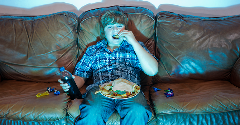
UK to ban junk food TV advertisements before 9pm
3 Oct 2024
In a bid to reduce childhood obesity, the UK government has introduced a policy, coming into effect on 1 October 2025, banning junk food advertising on television before the 9pm watershed.
Read more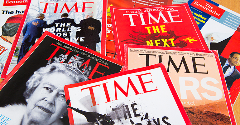
Which food and beverage brands made TIME’s Most Influential Companies list?
2 Oct 2024
Chickpea pasta, prebiotic sodas, food boxes, non-alcoholic beer, and a soil carbon marketplace are the specialties of the five food and beverage brands that earned a spot on TIME’s 2024 list.
Read more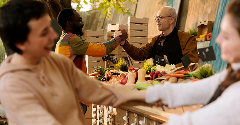
New environmental food scoring standards emerge
30 Sep 2024
EIT Food and Foundation Earth collaborate to launch environmental food scoring for products entering the global supply chain.
Read more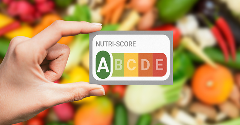
Danone removes NutriScore from products
20 Sep 2024
Following an algorithm update that gives some of its sweetened drinks a worse score, Danone has removed the front-of-pack label, NutriScore, from all of its products – putting profit before public health, say campaigners.
Read more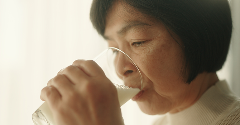
Nestlé develops a new fat reduction method for dairy ingredients
26 Aug 2024
A Brazil-based Nestlé research and development team has developed a way to reduce the fat in milk powder by as much as 60%, without impacting the key characteristics that consumers enjoy.
Read more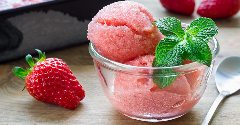
Better Juice expands its range to sorbets
16 Aug 2024
Food tech startup Better Juice has developed a technology to reduce the sugar content in fruit sorbets. The process retains the natural vitamins, minerals, and flavours of fruit, while offering manufacturers an easy-to-implement and scalable solution t...
Read more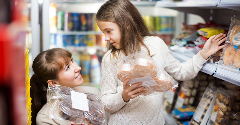
German study reveals high sugar, fat, and salt levels in children's foods
13 Aug 2024
The food industry is making slow progress in reducing the high levels of sugar, fat, and salt in German food and beverage products marketed to children, according to the Max Rubner Institute (MRI).
Read more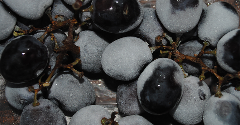
Swedish court overturns prohibition on winery’s use of imported frozen grapes
12 Aug 2024
Swedish company Drood Winery has successfully challenged the Swedish Food Agency’s decision to prohibit the production and sale of their product made from frozen grapes imported from Iran.
Read more
Paris Olympics: Food and beverage brands champion health, fun, and sustainability
5 Aug 2024
Food and beverage brands are aligning with the Paris Olympics 2024 Food Vision, which emphasises sustainability, local sourcing, and plant-based diets.
Read more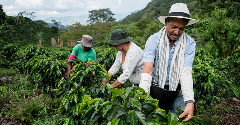
The coffee supply chain is failing farmers, says Solidaridad
30 Jul 2024
The coffee industry’s economic model means its profits do not reach farmers, despite there being enough value to be shared all along the supply chain, according to a new report by Solidaridad Network and IDH.
Read more